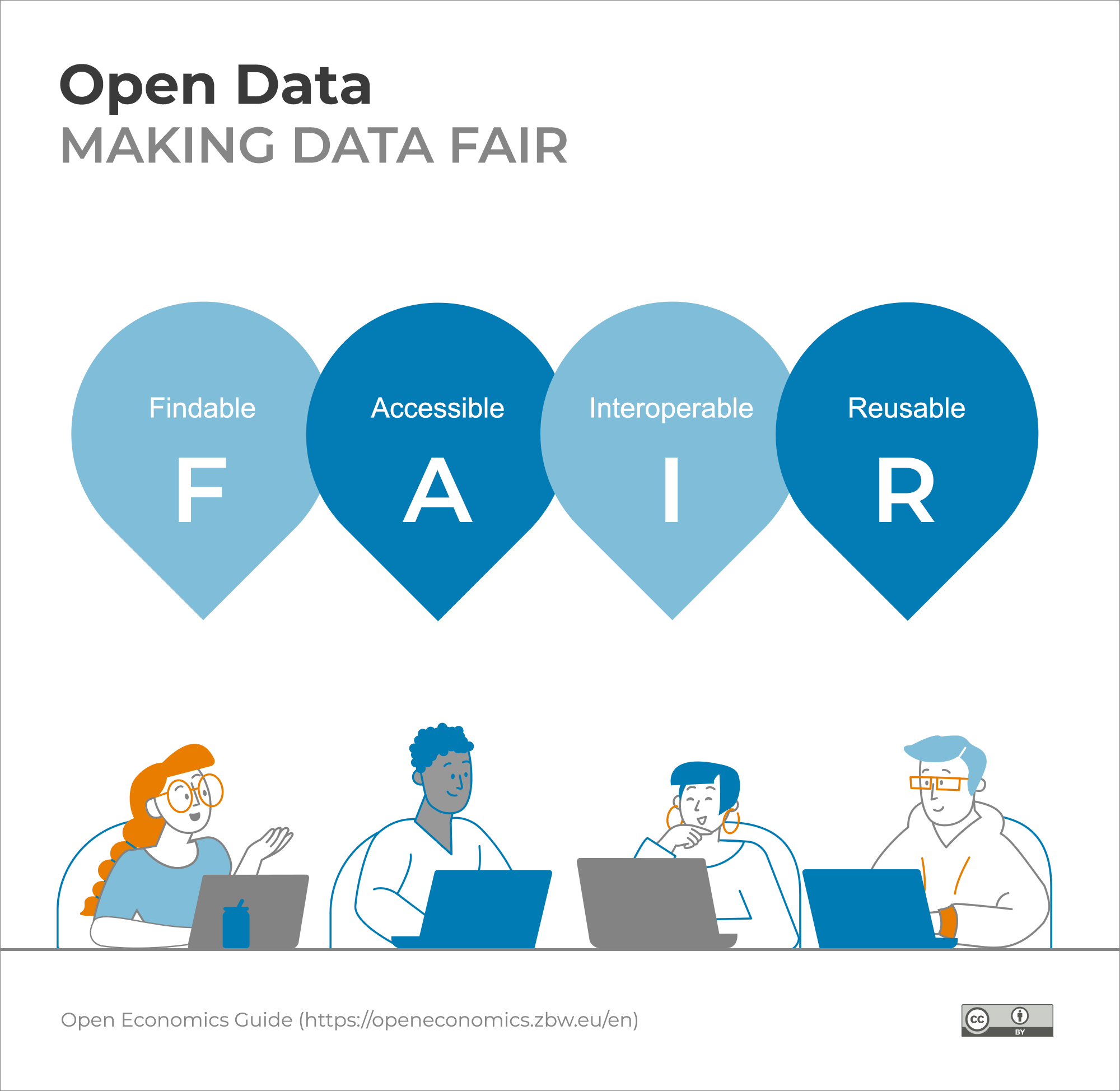How Data are Made FAIR
With the following measures, you can make your data FAIR, that means findable, accessible, interoperable and reusable:
Findable: Make your research data findable, by
- publishing your data and/or your metadata in a searchable resource such as in a repository that has a permanent identifier such as a DOI or an ORCID iD.
- using comprehensive, precise, machine readable, descriptive metadata and key words for your data. It is preferable to follow a community-specific metadata standard (like Dublin Core or DDI) or an ontology (for instance JEL classification), because metadata describe the research data and make them traceable and usable. In order to assign suitable metadata, you should consider what information another person may require in order to understand your analyses or your dataset.
Accessible: You make your research data accessible by
- using a data licence or a clear explanation of the accessibility of the data in your openly accessible administrative metadata,
- using storage that ensures the long-term data availability and a permanent identifier, so that a permanent link to your storage location exists (this is the case if you store your data in a repository),
- access to the metadata. This also makes closed data accessible to a certain extent.
Interoperable: You make your research data interoperable by
- sufficient and standardised structural metadata in compliance with the controlled standard vocabulary or the ontology of your research community,
- the use of common standards, terminologies, vocabularies, ontologies and taxonomies for the data,
- prioritising open, long-term sustainable file formats for your data and metadata.
Reusable: You make your research data reusable by
- integrating all relevant context information that is required for reuse, either in the documentation or in the metadata to your data,
- sufficient and standardised structural metadata in accordance with the controlled standard vocabulary or the ontology of your research community,
- prioritising open, long-term usable file formats for your data and metadata (for tables, the .csv format is ideal and .xls is acceptable. You are advised not to use the .pdf format because it does not necessarily fulfil the requirements of Open Data),
- using a machine readable data licence (such as Creative Commons, CC).

You can find more tips on how to make your data FAIR here:
- “How to make your data FAIR” created by the Danish National Forum for Research Data Management, with support from the Danish e-Infrastructure Cooperation (DeiC)
- “How to make your data FAIR” guide from the Utrecht University
- “PARTHENOS Guidelines to FAIRify data management and make data reusable” from the PARTHENOS project.
- “How FAIR are your data?” is a checklist that was compiled for the EUDAT Summer School, to check the FAIRness of the participants’ research data and how this data could be made FAIRer.
- ARDC FAIR Data Self Assessment Tool, FAIR-Aware, F-UJIand SATIFYD – Self-Assessment Tool to Improve the FAIRness of Your Dataset are tools that support researchers who want to improve the FAIRness of their research data.